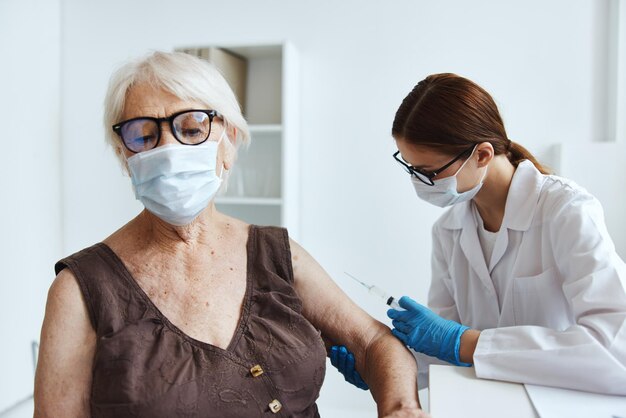Your Guide to the Shingles Vaccine: Timing, Benefits, and Considerations
Are you amongst the millions pondering whether it's time to get the shingles vaccine? This question resonates with many as they seek to protect themselves from the painful reactivation of the chickenpox virus known as shingles. While deciding on the right time to get vaccinated might feel daunting, understanding the nuances of the shingles vaccine will empower you with the information needed to make a confident decision.
Understanding Shingles and Its Impact
Shingles, or herpes zoster, is a viral infection characterized by a painful rash, and it's caused by the varicella-zoster virus—the same virus responsible for chickenpox. After recovering from chickenpox, the virus lies dormant in nerve cells and may reactivate years later as shingles.
The Toll on Well-being
Shingles is more than just an uncomfortable rash; it can lead to severe pain, itching, and complications like postherpetic neuralgia (PHN), which is long-lasting pain after the rash disappears. In some cases, it may even cause vision or hearing problems if it affects certain areas. Thus, understanding preventative measures, like the shingles vaccine, is crucial for maintaining health and quality of life.
When is the Right Time to Consider the Vaccine?
Determining when to get the shingles vaccine is influenced by age, health conditions, and prior vaccinations. The Centers for Disease Control and Prevention (CDC) recommends the shingles vaccine primarily for adults aged 50 and older.
Why Age Matters
As we age, our immune systems naturally weaken, increasing the risk of shingles and its complications. This makes the 50s an optimal time to bolster your immune defenses with the vaccine. However, there are multiple factors to consider:
- Age 50 and Over: This is the prime time to get vaccinated, even if you've never had chickenpox.
- Previous Shingles Episode: If you've had shingles, vaccination can help prevent future occurrences.
- Other Health Conditions: Those with weakened immune systems due to conditions like HIV/AIDS or cancer may need more personalized advice from healthcare providers.
Assessing Health Situations
Discuss with a healthcare professional if you have certain conditions or treatments that might affect vaccine efficacy or increase susceptibility to shingles. Special considerations might apply depending on your immune system's health.
Exploring the Shingles Vaccine Options
Currently, the most recommended shingles vaccine is Shingrix, which has largely replaced the older Zostavax. Here's what you need to know:
Shingrix: The Preferred Choice
Shingrix is a non-live vaccine, which means it doesn't contain the live virus, making it suitable for a broader audience, including those with immune disorders.
- Dosage: Requires two doses, usually given two to six months apart.
- Effectiveness: Provides more than 90% efficacy in preventing shingles and its complications.
Switching from Zostavax
If you previously received Zostavax, consulting with a healthcare provider about getting Shingrix is advised, as it offers improved protection.
What to Expect Before, During, and After the Vaccine
Understanding what happens before, during, and after receiving the shingles vaccine can help alleviate anxiety.
Preparing for Your Vaccine Appointment
- Health Assessment: Make a list of your current medications and health conditions to discuss with your provider.
- Vaccine Schedule: Be prepared for two appointments for the Shingrix doses.
The Vaccination Process
The vaccine is administered via injection into the upper arm. It's quick and usually lasts only a few seconds, with immediate minor side effects often being part of the experience.
Aftercare and Recovery
Post-vaccination symptoms might include soreness, fatigue, fever, or mild flu-like symptoms. While these typically resolve within a few days, staying hydrated and resting can ease discomfort.
Addressing Common Concerns and Misconceptions
As with any medical procedure, understanding the common fears and misconceptions surrounding the shingles vaccine is essential for informed decision-making.
Safety Concerns
Is the vaccine safe? Yes, extensive clinical trials have demonstrated that Shingrix is both safe and effective. As with any vaccine, side effects are possible but typically mild.
Vaccine Effectiveness Duration
How long does the protection last? Shingrix offers robust protection for at least four years, but ongoing research aims to determine the long-term effectiveness.
Insurance and Accessibility
Is the vaccine covered by insurance? In many cases, yes. Medicare Part D commonly covers the shingles vaccine, along with other private insurance plans, but verifying coverage specifics with your provider is wise.
Practical Steps for Moving Forward
Taking the next steps involves discussing your options with a healthcare provider, who can tailor advice to your unique health landscape.
Consult Your Healthcare Provider
- Discussion Points: Bring up your health status, past vaccination history, and any concerns you have about side effects or interactions.
Stay Informed on Developments
- Research: The landscape of vaccines is continually evolving. Staying informed through reliable health channels ensures you make the best choices for your health.
Engage in Community Awareness
- Educate and Advocate: Sharing your knowledge about shingles prevention can help your community become more health-aware.
Just the Facts: Clear Takeaways for Making Decisions
Here’s a quick summary to keep you prepared and informed:
- 👨⚕️ Recommended Age: Typically, get vaccinated at age 50+.
- 🔄 If You've Had Shingles: Vaccination can still prevent future recurrences.
- 💉Your Best Option: Shingrix, requiring two doses for optimal protection.
- 🏥 Managing Side Effects: Mild symptoms such as fatigue and soreness are common; rest and hydration can help.
- 🧾 Insurance Coverage: Often covered by Medicare Part D and private insurance; check with your provider.
In summary, the shingles vaccine is a critical tool in maintaining health and well-being as we age. By understanding the appropriate timing, available options, and associated benefits, you can make informed decisions that benefit your health in the long run. Prioritize a discussion with your healthcare provider today, and step into a future fortified against shingles.

